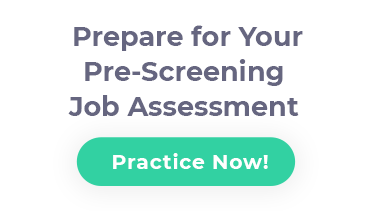Environmental Police Officer Exam Preparation – 2025

Environmental police officers or environmental protection officers (EPOs) work on issues involving nature and the environment. Their duties include protecting natural areas such as reservoirs, responding to hunting and fishing violations, dealing with pollution and litter, and much more. EPOs can work for local branches of the state or federal government. They might report to a federal agency such as the Environmental Protection Agency or the U.S. Fish and Wildlife Service.
EPOs perform many of the same duties as other peace officers, just with a focus on nature. They investigate crimes, complete arrests, carry weapons, and enforce laws. They also speak to the public to educate them on issues impacting local areas. If you care about nature, wildlife, and helping your community, a job as an EPO might be a good fit for you.
There are typically several steps in the process of becoming an EPO. First, you will need to find an opening and fill out an application. State and federal job boards can be a good place to start.
Next, you will usually be asked to take some form of written cognitive assessment, as described below. These assessments determine whether you have the mental abilities to succeed in the job.
Then, you will undergo a psychological evaluation and personality test to confirm that you have the right traits to be a good fit for the job. You will also complete a physical ability or fitness test. Environmental police work can be especially physically demanding as you typically have to walk long distances and lift heavy equipment.
Near the end of the process, you will have an interview, usually with a panel or board of officers. Some departments also require you to complete a drug test, polygraph, and medical examination.
What Is the Environmental Police Officer Exam?
The written exam used in the process of hiring EPOs is similar to that used by other police agencies. Each department or agency chooses which exam to use, as there are a variety of options. You should be able to confirm ahead of time which specific test you will take when you apply. Keep in mind that the particular details of the test will depend on which test the hiring agency uses, but the skills being measured are similar. For an entry-level position, you should not need prior knowledge or experience with the environment or police work.
Most agencies and departments consider 70% to be a passing score. However, a higher score can help you stand out during the recruitment process.
The written test typically includes some or all of the following sections.
Memorization
As an EPO, you will need to remember information such as the details of a crime scene or a suspect’s appearance. This test section measures your memory skills. The questions require you to view an image or document for a brief time, then answer multiple-choice questions about the image without referring back to it.
Visualization
This section assesses your ability to visualize an object from a different perspective or with its parts rearranged. For example, you might be shown an unfolded shape and identify what it would look like folded. You may be shown a 3D shape and then have to recognize it from a different angle.
Spatial Orientation
Spatial orientation skills relate to understanding the physical location of objects. For questions on this skill, you might be asked to view a road map and identify the fastest route between two locations. Or, you might need to look at a building layout and determine the best way to get from one part of the building to another.
Problem Sensitivity
For this section, the text describes a scenario that an EPO would face. You will need to identify an existing problem or potential problem based on the details of the scenario. For example, if the situation involves determining the health of a local wildlife population, you would need to identify problems such as a low birth rate or signs of disease.
Reading Comprehension
This skill might be referred to as written comprehension. To show your ability to understand and analyze written information, you will read a text or passage and answer questions about it. The text usually relates to situations an EPO would encounter on the job. It may be a short article or paragraph or a sample police report.
Written Expression
This section tests your writing skills, including grammar, spelling, punctuation, and vocabulary. The questions are usually multiple-choice. You might need to identify a misspelled word within a sentence or choose the most grammatically correct sentence from four or five options. Other questions ask you to fill in the blank in a sentence with the most appropriate word.
Deductive Reasoning
Deductive reasoning relates to your ability to think logically. For this section, you might need to read several statements or rules and use them to determine if a separate statement is true or false. In some cases, you won’t have enough information to come to a conclusion, which you can indicate in your answer.
Inductive Reasoning
In inductive reasoning, you will view pieces of information that may seem random or unrelated and use them to form a broad conclusion. This skill is useful to EPOs when they interpret laws or procedures and apply them to a situation. The questions may be in the form of word problems or pattern recognition.
How to Prepare for the Environmental Police Officer Exam?
Online practice tests geared toward EPO tests are a helpful way to prepare for your exam. Practice tests will help you identify any skills or areas of knowledge you need to work on. They also help you practice time management and staying calm under test conditions. Make sure to find a practice test that is timed, as your actual test will probably be timed.
Look for a practice test that covers the sections listed above. It’s helpful if your practice assessment includes an explanation of the answers, so you can review and learn from any questions you miss.
Don’t get discouraged if you don’t pass a practice exam the first time around. You can always study and try again. Once you achieve a good score, you’ll be much more likely to feel confident when you take the actual test. Feeling confident and relaxed on test day can make a big difference in your score.
There is often intense competition for open EPO positions, especially with federal agencies. These jobs are rewarding and offer excellent benefits. To stand out among a number of candidates, it’s vital to get a good score on your EPO exam. Proper preparation will help you earn a score you’re proud of.

